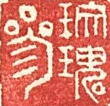Often people check the pulse to see if someone is still alive. In Chinese medicine, this is no different. In our medicine, however, we are checking for life, or health, in every aspect of one's being. We look to each and every organ system in isolation (on its organic or parenchymal level) and in relation to every other system, i.e., how it participates or contributes to the overall energy, blood and dynamic of the organism.
In Chinese medicine, it is not enough to take a snapshot of an organ or area of the body in order to assess its health or lack of disease. As no organ acts in isolation, the information that this would provide would be insufficient to understand the person's well-being. For example, a patient with fibroids is recommended by her doctor to remove her uterus based solely on the presence of a mass in that organ. But this completely ignores that there is an etiology behind the formation of this mass and ignores the fact that this etiology will remain despite the surgical removal of an organ. Was it caused by Liver stagnation and poor blood circulation in the tissues; maybe a weakness of the Kidneys and hormonal system, or a sexual trauma effecting the Heart and circulation to the pelvis, etc.?
One can never understand health without understanding relationships and interrelationships. Pulse diagnosis is the single best tool to see these relationships in a real-time precise and objective manner. One can determine the mechanisms behind the fibroid and virtually every other symptom in the body. Is there excess in the Liver from stagnant blood invading into the Stomach and causing reflux and indigestion? Is that Liver excess moving into the Heart and causing anger and anxiety? Is their a rough vibration over the pulse reflecting a serious trauma? Is alveoli function impaired in the Lung causing shortness of breath and asthma, or is it from a weakness of the Kidneys not grasping the Lung qi? Are the headaches caused by excess in the Gall Bladder, weakness in the digestive organs, or a trauma to the head reflected by a vibration and pounding in the neuropsychological position? Is the person's adrenal exhaustion a result of genetics and poor constitution, or lifestyle, drug use, excessive sex, or an obsessive personality reflected in the hesitant pulse wave and a constant firing of the sympathetic nervous system?
Without taking into consideration all the organ systems and the myriad relationships, one can never decipher the subtle signs the body is trying desperately to convey. It truly is the hallmark of the superior diagnostician.
Subscribe to:
Post Comments (Atom)





No comments:
Post a Comment